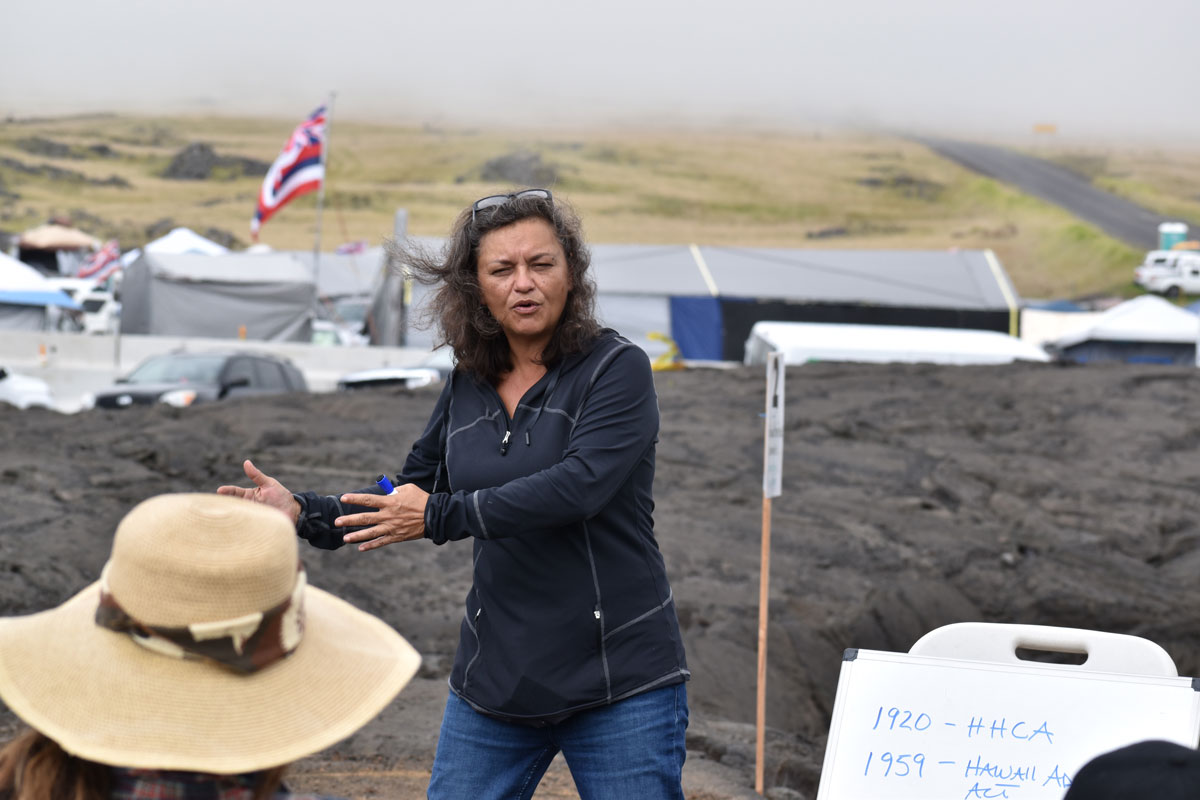
- Details
- By Chez Oxendine
- Real Estate
Several homes on the Lac du Flambeau Band of Lake Superior Chippewa’s reservation are still standing because of a brief boost in federal Native housing funds — funding that faces elimination under President Trump’s recent budget proposal, which cuts $475 million from tribal housing programs.
The Lac du Flambeau Band of Lake Superior Chippewa received an extra $400,000 boost to their block grant funding for housing in fiscal year 2024, which it used to rehabilitate several houses on its reservation. The money was part of a record-high $1.3 billion allocation made by Congress that year under the the Native American Housing Assistance and Self Determination Act (NAHASDA).
The tribe’s Housing Authority Administrator, Jeff Ackley, said the allocation represented a “15 to 20 percent boost” for many tribes. Ackley hoped it would mark a long-needed upward trend in housing funding.
Instead, President Donald Trump has proposed a return to the FY2023 formula funding of around $800 million — and cutting other costs, such as Hawaii’s portion of the block grant and a separate competitive grant program as well. In total, the program cuts amount to more than $475 million. The proposal was part of an early May release of Trump’s budget recommendations for FY2026.
“I’ve been doing this since 1998, and I’ve never seen anything like the current climate before,” Ackley said. “Cutting off funding like that — tribes are going to have an even harder time maintaining their housing stock. All the tribes are walking on thin ice with all of this.”
That goes doubly true for Native Hawaiians. Trump’s proposal notes that Hawaii’s NAHASDA block grant goes to a single grantee each year, and so the state of Hawaii should locate their own funding for their Native citizenry.
The grantee in question is the State of Hawaii’s Department of Hawaiian Home Lands (DHHL), which manages 203,000 acres of tribal trust lands for Native Hawaiians across six islands as mandated by Congress in 1959 as a condition of statehood. Like all other federal tribal land trust laws enacted in the early 1900s, Hawaii’s tribal lands were established as a federal obligation under the U.S. Constitution.
The DHHL has received block grants since Native Hawaiians were added to NAHASDA programming in 2001. That funding has since swelled from $2 million to $22 million in FY2024. If Trump’s budget recommendations were to be put in place, that money would be cut entirely, impacting low-income Native Hawaiians.
“The president’s view of the federal budget is just that, a view,” Robin Danner, policy director and former chair of Sovereign Council of Hawaiian Homestead Associations (SCHHA), told Tribal Business News in an email. “Ultimately, the Congress has the responsibility for spending.”
That isn’t the only housing cut laid out in Trump’s proposal. The grant programs laid out in NAHASDA are twofold: the original block grant program and the competitive grants program. The former utilizes data from tribes along with a formula to distribute annual funding to tribes for housing support; the latter allows tribes to compete for supplemental funding.
Trump recommends cutting the competitive grant program, which has hovered at $150 million annually since 2022, according to a Congressional Research Service report.
 L-R: Ackley, CastilloDave Castillo, CEO for Native Community Development Financial Institution (CDFI) Native Community Capital, told Tribal Business News that cutting competitive grants would hurt tribally designated housing entities (TDHEs). The grants rewarded the most “progressive and capable” TDHEs with extra funding, and that funding would be missed, Castillo said.
L-R: Ackley, CastilloDave Castillo, CEO for Native Community Development Financial Institution (CDFI) Native Community Capital, told Tribal Business News that cutting competitive grants would hurt tribally designated housing entities (TDHEs). The grants rewarded the most “progressive and capable” TDHEs with extra funding, and that funding would be missed, Castillo said.
“It’s almost like the White House doesn’t know what they’re doing,” Castillo said.
The rest of the cuts would ostensibly stem from slashing the block-grant funding, which saw a 30% increase in 2024 to a total of $1.11 billion. Even that fell short of what housing experts say is the estimated need. For his part, LDF’s Ackley estimated Indian Country would need more than 500,000 new homes to close the housing gap.
Ackley wants to see NAHASDA reauthorized. The act was last reauthorized — and its funding levels determined — in 2013. Since then, rising construction costs and market inflation have effectively served as funding cuts each year since, Ackley said.
A reauthorization would bring funding levels not just back to FY2024, but up and over into more helpful territory. As it stands, the act’s programs comprise just 1.8% of the Department of Housing and Urban Development’s total funding pool — an amount that’s “just enough to keep tribes happy and quiet,” Ackley said.
“I just hope that things change, and soon,” Ackley said. “There’s such a huge funding shortage for tribal communities - what we’re getting now is not nearly enough to take care of anything.”
Experts across Indian Country echoed Danner’s cautious insistence that the budget proposal was not final, and subject to Congressional modification and approval.
“While these proposed cuts are concerning, it is important to reiterate that the President’s budget serves as a recommended blueprint – it does not determine final funding. Congress ultimately holds the power to set final funding levels through the appropriations process,” Rudy Soto, executive director for the National American Indian Housing Council, wrote in a statement. “As the budget process moves forward, we will also be preparing and distributing advocacy tools and guidance to support [council members’] engagement with lawmakers.”
Danner, who serves as CEO and co-founder of Native CDFI Homestead Loan Fund, said Indian Country should look to “educate” their representatives in Congress on the benefits of tribally developed housing, ranging from economic development to generational wealth.
“Our issues are not partisan…we will roll up our sleeves and educate elected officials on the incredible contributions to the economy when we are in the game in housing and capital access for small businesses in and around tribal communities,” Danner said. “We will never move off shore, never duck hard times, and we are stable and reliable partners in advancing federal priorities.”
Editor's Note: This story has been updated to correct the grantee of Hawaii's NAHASDA block grant. It is the state of Hawaii's Department of Hawaiian Home Lands (DHHL), not the Sovereign Council of Hawaiian Homestead Associations (SCHHA).
